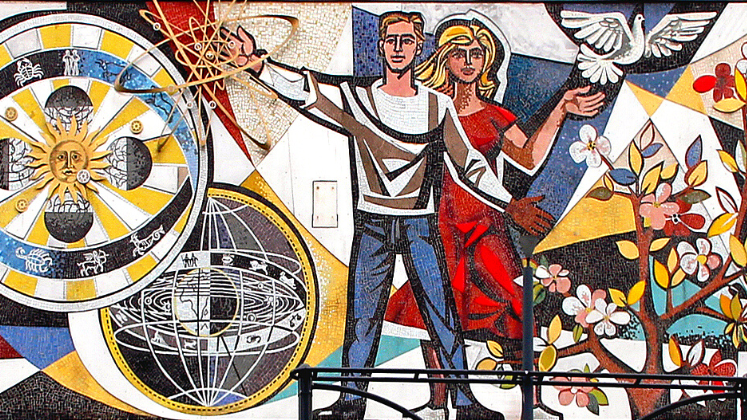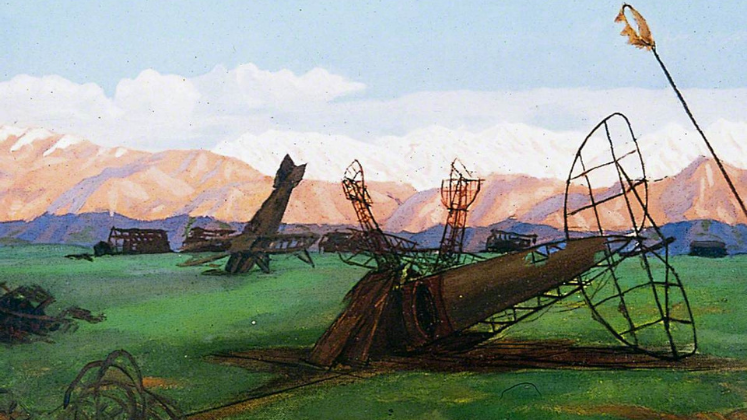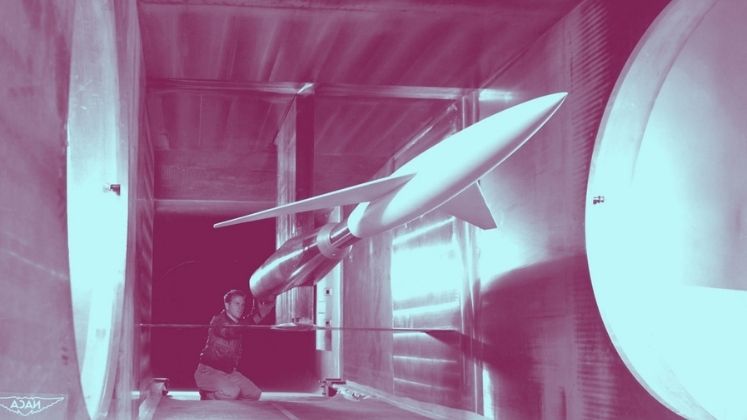Reflecting on developments in science diplomacy following the war in Ukraine and developing ideas from their previous post questioning the current conceptualisation of science diplomacy, Doubravka Olšáková and Sam Robinson, argue that we are at the beginning of a new era of ‘post naïve’ science diplomacy.
‘Science is politics by other means’ – as almost said by Bruno Latour
Immediately after the onset of the Russian war in Ukraine came the first thoughts about the role of scientific collaboration between the EU and Russia. Possible sanctions would have played a marginal role (only 0.4% of projects financed from the H2020 scheme included cooperation with Russia). However, in early discussions, the role of science was largely side-lined, with diplomats and scientists seeking to maintain the enduring myth of apolitical science, a neutral state from which to build possible collaborative futures.
By the 25th of February (one day after the Russian invasion) demands for an immediate cessation of financing for all joint scientific projects involving Russia appeared in the European parliament. Subsequently, Europe abandoned its unified approach and most states started acting unilaterally to protect their own national interests. At this point, the priority was technology and technological sanctions, as President of the EU Commission Ursula von der Leyen had said on 24 February: ‘We want to cut off the Russian industry from technologies which today shape the future.’ Science as soft power evaporated as conflict erupted and the cold war distinction between science and technology, as both hard and soft power, re-entered European diplomatic relations with Russia.
By March, Europe had split in two: Germany was in favour of radically cutting Russia off from all scientific projects, while Great Britain, Sweden, Denmark, The Netherlands, and Belgium revealed themselves as being in favour of limited collaboration. This disunity was illustrated by two radically different statements: German MP Thomas Sattelberger and deputy of the Minister of Education stated that ‘face to face with a brutal invasion that is in violation of international law, there exists no science diplomacy’, whereas the British diplomat and expert in international relations James Moran insisted that ‘the scientific world should maintain contact with Russia’. However, what parts of the scientific world should remain in contact with Russia and which collaborations should be broken off was unclear.
In her proclamation of 3rd March 2022, Maryia Gabriel, EU Commissioner for Innovation, Research, Culture, Education and Youth, condemned Russian military aggression against Ukraine and announced with immediate effect, all financing of Russian institutions within existing agreements would cease. With this proclamation a new ‘post naïve’ age of EU science diplomacy making was begun. A return to a situation reminiscent of Cold War international scientific exchange, when during periods of conflict, technological rivalry, exchanges become highly charged and carefully regulated, political arrangements, as much as scientific collaborations.
With this proclamation a new ‘post naïve’ age of EU science diplomacy making was begun.
If the EU thought that these moves would temper senior Russian academics, they were to be disappointed. A day later on the 4th March 2022, rectors of Russian universities published a Proclamation of the Russian Union of Rectors (Обращение Российского Союза ректоров) which expressed full support of Russian policy in Ukraine and of President Putin and violated the main principles of the Magna Charta Universitatum (1988), which enshrines the political independence of universities.
On the other hand, various protests and open letters have been written by Russian scientists openly criticising the Russian government and calling for an immediate cessation of hostilities. Notably, the Open letter of Russian scientists and science journalists against the war with Ukraine, which several hours after its publication on 24 February 2022 was signed by over 4,000 scientists (as of 5 May over 10,000). Views that were echoed across research fields, such as history and mathematics, the latter in an open letter now removed from the internet. The open letter of Russian scientists and the others that followed were among some of the first public reactions of Russian citizens to the Russian policy in Ukraine and were met with massive support. They thus likely played an important role in the activation of public opinion and subsequent open demonstrations in the streets of large Russian towns.
In response, to these actions the reaction of the Russian Academy of Sciences, which had so far remained out of the limelight, was more moderate and merely called upon the international scientific community to remain politically neutral. But even these steps did not persuade all rectors to support the Russian war rhetoric. Some universities, especially the smaller ones, are not included in the list of the proclamation of rectors, while others feature both in the first open letter against the war and in the rectors’ proclamation. Subsequently, the Kremlin has also utilised researchers and students in information campaigns in support of the war and criticising western higher education institutions, who it claims have persecuted Russian students and staff.
Image Credit: Detail of OTFW, Berlin, Mosaic, “Unser Leben” by Walter Womacka, 1964, Alexanderstraße 9, Berlin-Mitte, Germany (CC BY-SA 3.0) via Wikimedia Commons.
A separate emerging issue relates to open science and publication. As Maryia Gabriel remarked at a meeting of EU ministers of education: ‘European programmes of research and innovation have a long tradition of open science, but this is threatened by geopolitical changes.’ This issue also reflects the economic interests of companies such as Elsevier, QS, amongst others. In particular, the Ukrainian minister of science and education has asked the academic public to boycott Russian scientific events and stop cooperation. The Ukrainians have also called for Russian access to digital repositories and scientometric databases to be limited. At the beginning of the Russian-Ukrainian War, the position of SCOPUS and Web of Science with respect to modification of their databases to the detriment of Russia was largely dismissive, nevertheless the Ukrainian Ministry of Education and Science of Ukraine published on 31 March 2022 a press release announcing that Clarivate and Elsevier support Ukraine and has ceased all activities in Russia and suspended all sales and services in Russia and Belarus.
Other transnational companies have been sceptical of these restrictions arguing that progress in science (and profit) is directly dependent on sustaining international scientific cooperation. However, the 31st March 2022 was a turning point fifteen of the most important publishers including Cambridge University Press, Elsevier, Brill or De Gruyter condemned invasion of Ukraine by Russia and defined their own ‘post-naïve’ principles of global publication culture: to be committed to the ideals of science and scholarship as a global community, to refrain from rejecting authors on the basis of their nationality, ethnicity, political beliefs, race or religion, but to target research organisations of aggressors.
Where does science diplomacy go from here?
The current fast moving and complex situation argues against predictions for future science diplomacy. However, some trends are apparent which could significantly influence the future structure of science policy of European states with respect to Ukraine and Russia. Whilst the EU has remained relatively passive in terms of collective science diplomacy there are signs this may change. The EU Commissioner Mariya Gabriel recently announced a package of direct help to scholars at risk and allocated €25 million to special Marie Sklodowska-Curie Action to be distributed by consortium of ten (national) scientific institutions and bodies. As the situation progresses there may be additional opportunities to develop multilateral institutions and instruments of science diplomacy.
Whilst the EU has remained relatively passive in terms of collective science diplomacy there are signs this may change.
Further, at the beginning of the conflict research agencies and the higher education sector focused on individuals. Now there are growing efforts to shift from fragmented aid for individuals to systematic action, such as the provision of help to entire research teams and other scientific units. This option is both financially, and in other ways, a more demanding enterprise, but from the perspective of the immediate future perhaps the most significant Science Diplomacy development that might emerge from the conflict.
This approach is even more important looking beyond the war, when it will be necessary to respond to countries affected by the most severe outward migration of experts experience in the past century and a heavy loss of life. According to data from 2019, there were about 80,000 scientists active in Ukraine, of whom 44% were women. Ukrainian science will likely be decimated, both on the level of its practitioners and its infrastructures. Russian scientists will also be damaged intellectually and those who supported the regime at this time perhaps also morally. Science Diplomacy is primarily an instrument for times of peace. During crises its options, at least in its current form, are limited. However, the form and shape of both Ukrainian and Russian science are being decided now. If Science Diplomacy truly has the power to change the world, it will be the EU science diplomacy of the coming years that will have to face this challenge.
The content generated on this blog is for information purposes only. This Article gives the views and opinions of the authors and does not reflect the views and opinions of the Impact of Social Science blog (the blog), nor of the London School of Economics and Political Science. Please review our comments policy if you have any concerns on posting a comment below.
Image Credit: Detail of OTFW, Berlin, Mosaic, “Unser Leben” by Walter Womacka, 1964, Alexanderstraße 9, Berlin-Mitte, Germany (CC BY-SA 3.0) via Wikimedia Commons.
Parts of this post first appeared in vesmír Evropská věda ve stínu rusko-ukrajinské války.









1 Comments